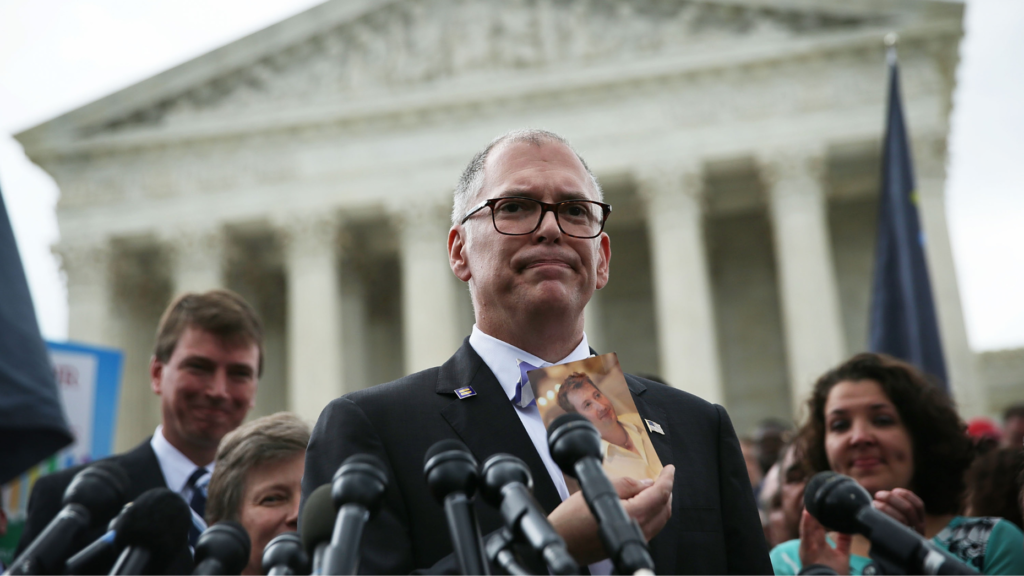Julie Nelson, who proudly identifies as an L in the LGBTQ+ community, says that everyone appreciates a little guidance when it comes to navigating differences. Here are a few tips for working with LGBTQ+ clients.
Most of my straight Realtor friends have worked with same-sex couples and appreciate a little input and insight now and then, as any of us would working with any client — a little insight on how to be more effective with [fill in the blank] — millennials, divorced, wealthy, Black, Native American, veterans, seniors, any subset.
It’s one of the reasons NAR has the At Home With Diversity designation, to help agents understand that there can be differences, nuances, things we should know to be most effective.
As a 22-year real estate professional who identifies as the L in the LGBTQ alphabet soup, I have served hundreds of LGBTQ clients over the years and have held leadership roles in national LGBTQ real estate organizations. I have insight on the topic.
I also asked for some input in my national Realtor Pride network: “What do you think your LGTGQ clients would like their agents to know about their real estate needs?”
Probably the most poignant input came from my friend Mary Wagner with eXp Realty in Buffalo. She said, “That’s tough. How do you write a whole article that says treat them the same?” So there it is.
As real estate professionals, we have a responsibility to understand our clients, their needs and concerns — and to treat people with respect. For some of you, hopefully most of you, this is common sense and falls into the “simply being a good human” category.
Here are some things that may help in working with same-sex couples (you may notice how so much of this applies to any client, regardless of what flag they wave):
- It’s OK to ask them about their marital status; this matters with lending and how buyers take title. This matters with our straight clients as well — we cannot assume their marital status and title implications.
- Yes, ask them if they have kids. We need to know if schools are important to them.
- Don’t assume where they want to live.
I called my friend, Bob McCrainie, founder of Texas Pride Realty in Dallas. We had a simple conversation about dignity and respect. Respect as a couple means not referring to the clients as “brothers” or “roommates” or “her special friend,” especially when they have told you they are married or partners.
Bob told me about an insurance policy he personally encountered that didn’t know how to list two men on the policy so one had to be listed as the owner, one as the tenant. I have had buyers, quite a few over the years, who had the concern that two female names or two male names on the offer could potentially impact how their offer was perceived.
As Realtors, we are all obligated to the NAR Code of Ethics, which states that “Realtors shall not deny equal professional services to any person for reasons of race, color, religion, sex, handicap, familial status, national origin, sexual orientation, or gender identity.”
Yet, we are faced with this — and depending on where you live, your LGBTQ clients and friends may really need you to know this — that in 29 states, it is legal to discriminate against the LGBTQ+ community in all aspects of the transactional process with housing.
Your clients need you to be aware of how that can happen in your area, your state. And when they hire you as their Realtor, they are hiring you as an advocate. As with any client, if you cannot advocate, respect or represent your client at a high level, then please refer it out to someone who can and will.
Most agents I know, gay or straight, have worked with LGBTQ clients. This may be most prevalent with metro agents, less so with not-metro. The LGBTQ+ Real Estate Alliance, in partnership with FreddieMac, published their second annual LGBTQ+ Real Estate Report this spring. These organizations share a vision of a world free from housing discrimination.
The report states:
“While 26 percent of reporting LGBTQ+ Real Estate Alliance members share that discrimination based on sexual orientation and gender identity against potential homeowners during the home buying process has decreased over the last three years, 18 percent report it has increased.”
What caught my attention in the report’s findings was that:
“real estate professionals are cited as the leading culprit followed closely by homeowners, landlords and leasing agents.”
It’s Pride Month. Here’s to helping you serve your LGBTQ clients at the highest level possible.



 Are You Interested in West Eleventh Residences Miami?
Are You Interested in West Eleventh Residences Miami? Are You Interested in ONE Park Tower by Turnberry?
Are You Interested in ONE Park Tower by Turnberry? Are You Interested in Diesel Wynwood Condominium?
Are You Interested in Diesel Wynwood Condominium? Are You Interested in Five Park Miami Beach?
Are You Interested in Five Park Miami Beach? Are You Interested in Cipriani Residences Miami?
Are You Interested in Cipriani Residences Miami? Are You Interested in Bentley Residences Miami?
Are You Interested in Bentley Residences Miami? Are You Interested in Baccarat Residences Brickell?
Are You Interested in Baccarat Residences Brickell? Are You Interested in Aria Reserve Miami?
Are You Interested in Aria Reserve Miami? Are You Interested in 888 Brickell Dolce & Gabbana | Miami?
Are You Interested in 888 Brickell Dolce & Gabbana | Miami? Are You Interested in 600 Miami WorldCenter?
Are You Interested in 600 Miami WorldCenter? Are You Interested in HUB MIAMI RESIDENCES?
Are You Interested in HUB MIAMI RESIDENCES? Are You Interested in WALDORF ASTORIA RESIDENCES?
Are You Interested in WALDORF ASTORIA RESIDENCES?